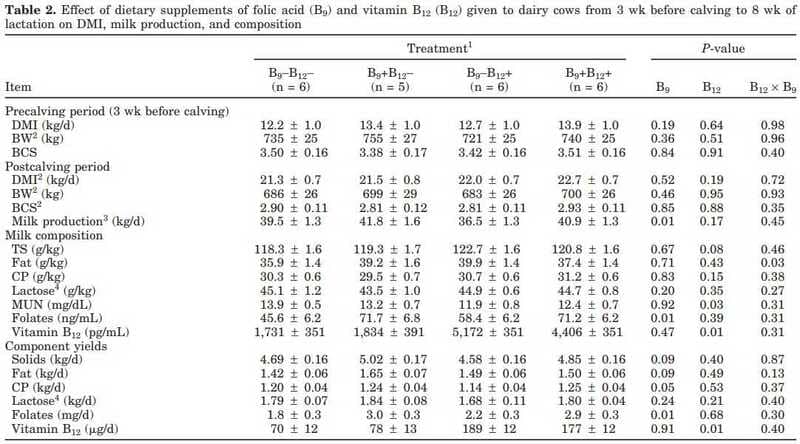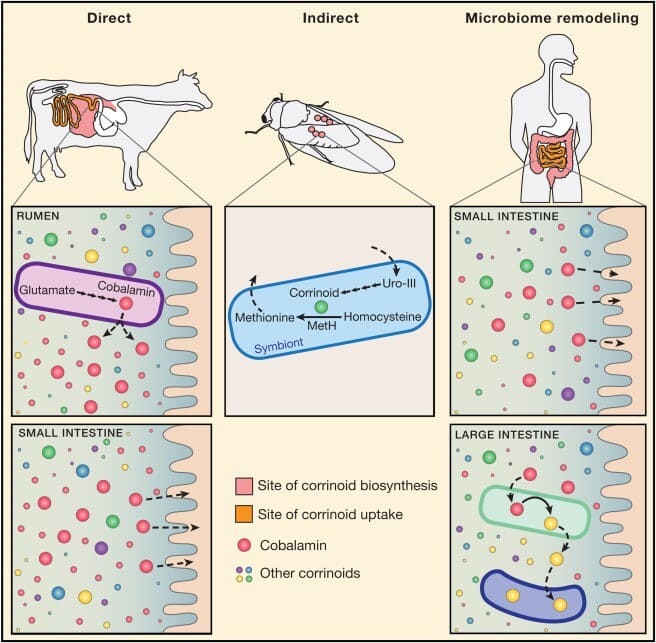 Graulet, Benoit, et al. Journal of Dairy Science, 2007, 90(7), 3442-3455.
Graulet, Benoit, et al. Journal of Dairy Science, 2007, 90(7), 3442-3455.
The research team investigated 24 dairy cows through their peripartum period (three weeks before and eight weeks after birth) to determine how folic acid and vitamin B12 affected lactation and metabolism. The cows were assigned to 6 blocks of 4 cows each based on their previous milk production. Supplementation with folic acid 0 or 2.6 g/d and vitamin B12 0 or 0.5 g/d was performed in a 2 × 2 factorial arrangement.
· Key Results
Folic acid supplementation significantly increased milk yield and milk protein production. It also altered plasma amino acid profiles, increasing glycine, serine, threonine, and total sulfur amino acids while decreasing aspartate. Vitamin B12 supplementation reduced milk urea nitrogen and plasma concentrations of certain branched-chain amino acids (isoleucine, leucine, and valine), while increasing homocysteine, cysteine, and total sulfur amino acids. Liver phospholipid concentrations were elevated in cows receiving vitamin B12.
· Conclusion
Folic acid supplementation enhanced lactation performance independently of vitamin B12. While vitamin B12 supplementation did not directly improve milk production, the combination of both vitamins appeared to increase their overall availability, particularly in tissues outside the liver. Furthermore, the combination of folic acid and vitamin B12 seemed to improve metabolic efficiency, as evidenced by comparable lactation performance and dry matter intake to the folic acid-only group, but with higher blood glucose and reduced liver lipid accumulation.


 Graulet, Benoit, et al. Journal of Dairy Science, 2007, 90(7), 3442-3455.
Graulet, Benoit, et al. Journal of Dairy Science, 2007, 90(7), 3442-3455.
 Degnan, Patrick H., et al. Cell metabolism, 2014, 20(5), 769-778.
Degnan, Patrick H., et al. Cell metabolism, 2014, 20(5), 769-778.